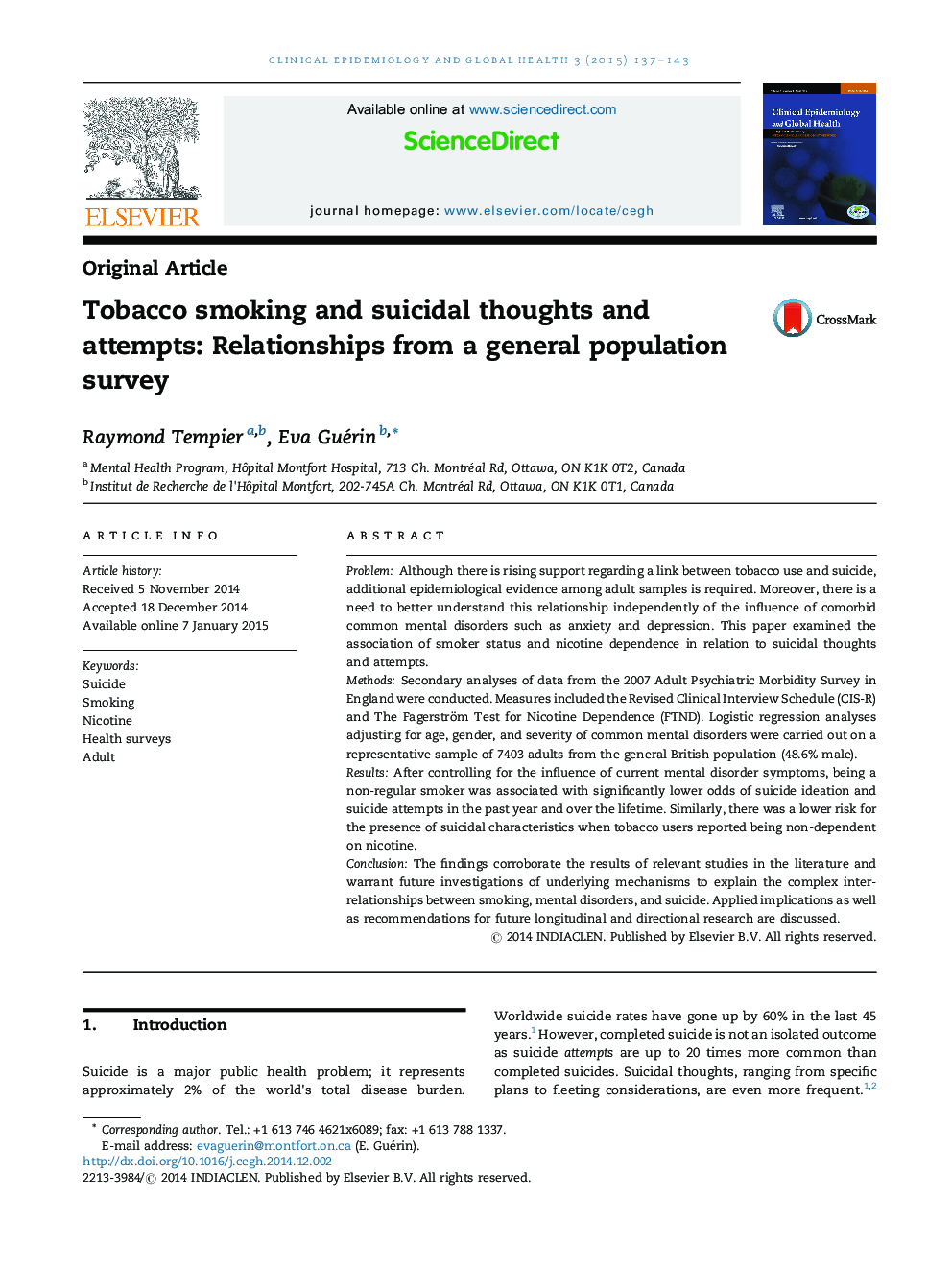| Article ID | Journal | Published Year | Pages | File Type |
|---|---|---|---|---|
| 3396298 | Clinical Epidemiology and Global Health | 2015 | 7 Pages |
ProblemAlthough there is rising support regarding a link between tobacco use and suicide, additional epidemiological evidence among adult samples is required. Moreover, there is a need to better understand this relationship independently of the influence of comorbid common mental disorders such as anxiety and depression. This paper examined the association of smoker status and nicotine dependence in relation to suicidal thoughts and attempts.MethodsSecondary analyses of data from the 2007 Adult Psychiatric Morbidity Survey in England were conducted. Measures included the Revised Clinical Interview Schedule (CIS-R) and The Fagerström Test for Nicotine Dependence (FTND). Logistic regression analyses adjusting for age, gender, and severity of common mental disorders were carried out on a representative sample of 7403 adults from the general British population (48.6% male).ResultsAfter controlling for the influence of current mental disorder symptoms, being a non-regular smoker was associated with significantly lower odds of suicide ideation and suicide attempts in the past year and over the lifetime. Similarly, there was a lower risk for the presence of suicidal characteristics when tobacco users reported being non-dependent on nicotine.ConclusionThe findings corroborate the results of relevant studies in the literature and warrant future investigations of underlying mechanisms to explain the complex inter-relationships between smoking, mental disorders, and suicide. Applied implications as well as recommendations for future longitudinal and directional research are discussed.
